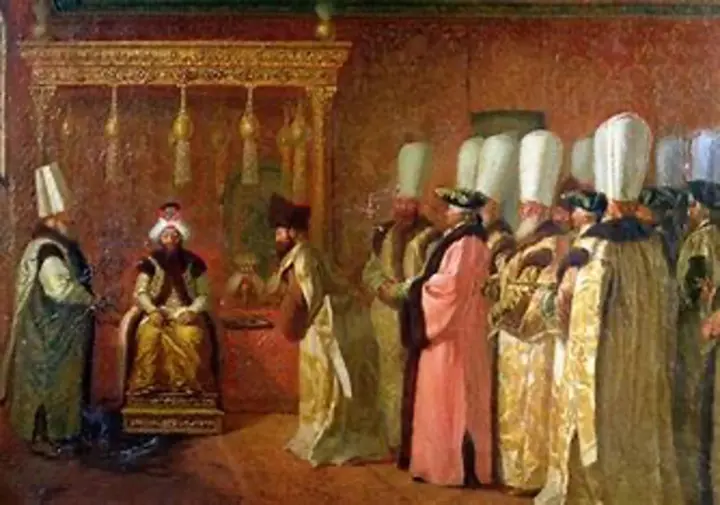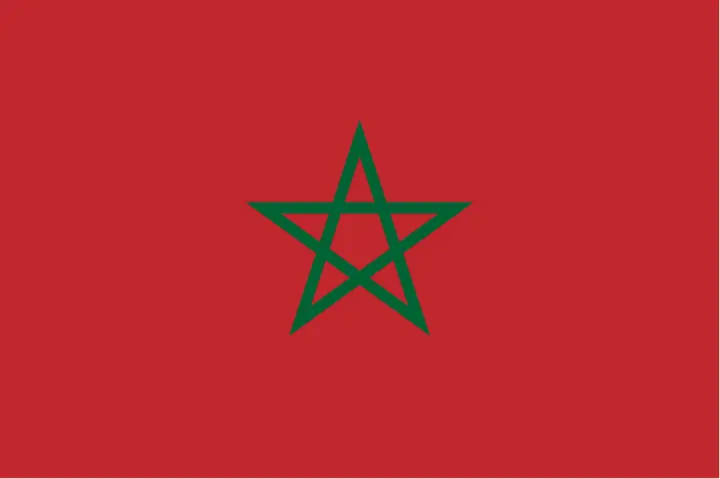The Battle of the Three Kings on the territory of Morocco
The Battle of the Three Kings, also known as the Battle of Wadi al-Makhzen, is one of the most important battles that took place on the land of Morocco, in which three kings died, which is a completely unexpected event! That epic battle highlighted the strength and attachment of Moroccans to their land, as well as their courage, pride and cunning in planning and strategizing war. This historical battle has a special impact on Moroccan history, which we will learn about in this article.
Show key points
- The Battle of the Three Kings, also known as the Battle of Wadi al-Makhzen, was a pivotal confrontation in Moroccan history involving the deaths of three monarchs.
- The conflict showcased the bravery, strategic intelligence, and deep sense of patriotism of the Moroccan people in defending their land.
- Political rivalry within the Saadi dynasty led Sultan Muhammad al-Mutawakkil to seek military support from Portugal, while his exiled relatives aligned with the Ottoman Empire.
- ADVERTISEMENT
- King Sebastian of Portugal launched an ambitious invasion of Morocco, ignoring strategic warnings which ultimately led to his downfall.
- Sultan Abdul Malik, despite being gravely ill, led the Moroccan army with determination and ultimately orchestrated a decisive victory through tactical brilliance and pre-battle provocations.
- The outcome of the battle resulted in catastrophic losses for the Portuguese side, including the death of Sebastian and the collapse of their invasion plan.
- Following the battle, Ahmed Al-Mansour ascended the throne and ushered in a golden age of prosperity and power for Morocco, highlighting the long-term impact of the victory.
Behind the scenes:

Sultan al-Ghalib was assassinated in 1547 and his son, Sultan Muhammad al-Mutawakkil, took over. At that time, the brothers of the Victorious Sultan, Ahmed Al-Mansur and Abdul Malik, fled for fear of Al-Mutawakkil's threats to ensure that his son inherited power, and the Ottomans received them at that time, where they trained and taught them until they participated in some battles, and through them they won the admiration of the Ottoman Sultan Murad III.
Recommend
In 1576, the Ottoman Sultan Murad III took advantage of Spain's entry into war with England and prepared an army of thousands of soldiers under the command of Abdul Malik. Hence, Al-Mutawakkil used Portugal to be a guest of the young King Sebastian, where he asked him for help in exchange for Portugal's control of the coasts of Morocco, an offer that King Sebastian did not hesitate to accept despite the warnings of his uncle, the King of Spain, not to enter it because it is inevitable to lose.
Events of the Battle of the Three Kings:

Sebastian's army crossed into Morocco from the Mediterranean on July 9, 1578, consisting of 28,000 Portuguese soldiers in addition to the Spaniards, Italian and German mercenaries, Vatican soldiers in 1,500 fighters, in addition to Al-Mutawakkil and his companions. They then wreaked havoc on the country and advanced, occupying city after city.
In front of this incident Russell Abdul Malik Sebastian, saying: "The power has appeared in your exit from your land and your passport to the sea to the enemy of Muslims, if proven in the coast until I advance on you you are a real Christian brave, and if crawled to the country and despised after the parish before you meet a prince like you, you are a dog son of a dog", and in the novel I see "a Jew son of a Jew". Sebastian became very angry and stubborn with the prince, with his commanders warning of the need to advance and control strategic positions.
At that time, Abd al-Malik learned that Sebastien Gur, and facilitated his provocation, wrote to him again, saying: "I came to you departing from Marrakesh sixteen stages, and you did not condemn me to any stage." The lure movement was successful, as the King of Portugal defiantly descended from his fortifications and crossed the Valley of the Makhzens. At night, the Moroccan sultan induced his brother Ahmed al-Mansur to lead an armed division to demolish the only bridge through which Sebastian's army had crossed.
On August 4, 1578, the clock of war struck and the two armies met near the Valley of the Stores. Abdul Malik opened his speech by raising the morale of his soldiers by reminding them of the symbolism of the battle and the fact that they are defending their land and their children against the invaders, despite the fact that Abdul Malik was living his last moments. His doctor tried to persuade him not to participate but insisted on heading the war to preserve the morale of the army until the last breath, something his brother Ahmed al-Mansour was aware of and Abdul Malik recommended him to fight until the last time without retreat.
In the meantime, the war intensified and took place, the difference in number was vast in the square, and the mistakes of King Sebastian appeared, who did not provide a passage for retreat or redeployment, in addition to this, the heat that the soldiers could not withstand the heat unusual for them in their iron clothes. Sultan Abdul Malik gave the signal to his brother Ahmed Al-Mansour, where he made a circumvention with his knights, through which the enemy was trapped, and when night fell he had killed thousands of invaders and others were captured, either Al-Mutawakkil is said to have fallen in battle or that he drowned fleeing in the valley.
Unfortunately, the disease intensified on Sultan Abdul Malik and he was unable to celebrate with his supporters and breathed his last on the battlefield after he completed his mission, after which his brother Sultan Ahmed Al-Mansour took over the rule, to rule for about a quarter of a century during which Morocco lived the most beautiful days, prosperity, science, power and urbanization to become the most famous Sultan Saadi who took over the rule in Morocco.








